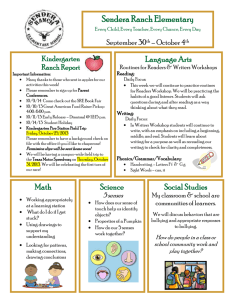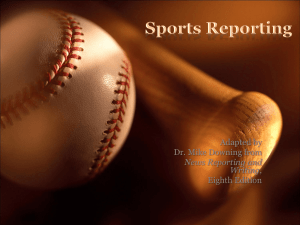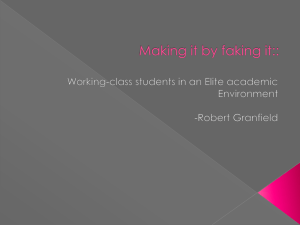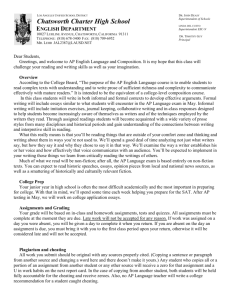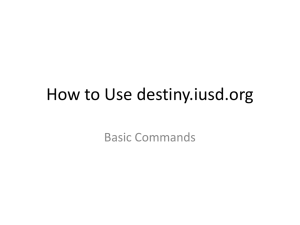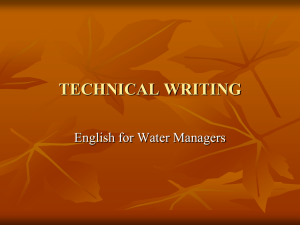Teaching Philosophy
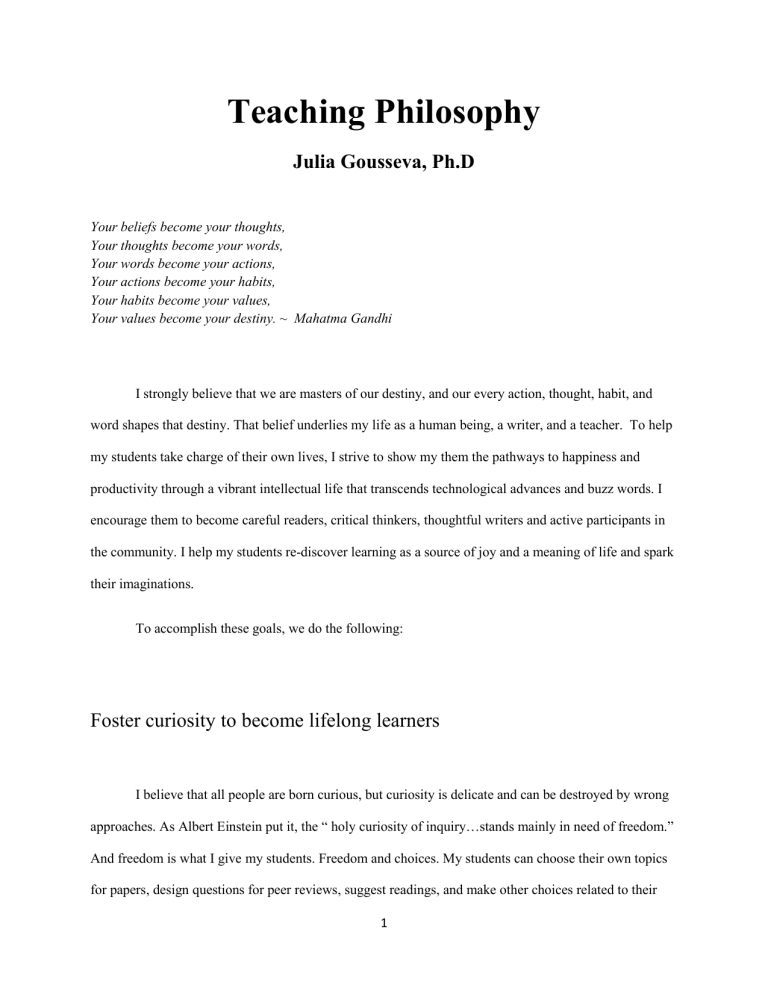
Teaching Philosophy
Julia Gousseva, Ph.D
Your beliefs become your thoughts,
Your thoughts become your words,
Your words become your actions,
Your actions become your habits,
Your habits become your values,
Your values become your destiny. ~ Mahatma Gandhi
I strongly believe that we are masters of our destiny, and our every action, thought, habit, and word shapes that destiny. That belief underlies my life as a human being, a writer, and a teacher. To help my students take charge of their own lives, I strive to show my them the pathways to happiness and productivity through a vibrant intellectual life that transcends technological advances and buzz words. I encourage them to become careful readers, critical thinkers, thoughtful writers and active participants in the community. I help my students re-discover learning as a source of joy and a meaning of life and spark their imaginations.
To accomplish these goals, we do the following:
Foster curiosity to become lifelong learners
I believe that all people are born curious, but curiosity is delicate and can be destroyed by wrong approaches. As Albert Einstein put it, the “ holy curiosity of inquiry…stands mainly in need of freedom.”
And freedom is what I give my students. Freedom and choices. My students can choose their own topics for papers, design questions for peer reviews, suggest readings, and make other choices related to their
1
learning in my courses. To become independent and purposeful in their revisions, my students write multiple drafts and explain their reasons for revisions to enable me to guide them with feedback. Such a step-by-step multiple-draft approach helps students build long-term success in writing, improves their motivation, and makes them more willing to explore different genres and approaches to writing, thus fostering their curiosity. Students who are given choices tend to stay curious and motivated longer and are more inclined to tackle higher goals and harder challenges.
I lead by example and maintain an active reading, writing, and learning life by taking reading and writing courses, developing new teaching materials, as well as attending and presenting at professional conferences.
Critically engage with the texts we are reading and writing
The importance of critical thinking in logical and rational decision-making has been discussed since the times of Plato and Aristotle. When applied to reading and writing, critical thinking means evaluating evidence, analyzing our own thought processes, and consistently improving them. The approach to reading that I try to follow with my students is best described in Francis Bacon’s words,
“Read not to contradict and confute; nor to believe and take for granted; nor to find talk and discourse; but to weigh and consider.” When my students read published essays or each other’s work, I ask them to read closely and support their claims with textual evidence.
I teach my students to apply the same “weight and consider” approach to their writing. For example, in personal essays, I ask the students to look for a deeper meaning of events, to question themselves, to think about the way these events have shaped them as human beings and changed their perceptions of self and society. With the right angle and the right kinds of details, a personal story becomes a story of a human experience that readers can relate to even when these readers come from different backgrounds or interests. In annotated bibliographies, I ask the students to evaluate credibility of
2
sources, potential biases, and intended audiences. In research papers, I ask them to consider multiple perspectives, to formulate clear thesis statements and to support their arguments with source material.
Develop grit
A number of recent studies, including the study by Angela Duckworth and Martin Seligman, have confirmed my long-held belief that grit, or the ability to persevere despite adversity over the long term, is a stronger predictor of success than any other single factor, including IQ. We want to get better at doing things, but it’s not always easy because sometimes we don’t have enough grit or we don’t anticipate difficulties. I’ve noticed that my students tend to persevere through difficulties more if I remind them that writing can be hard, frustrating, and challenging even for professional writers, but that the rewards at the end of a long road are well worth the effort.
Teach and learn in a safe and inclusive environment
As a writing teacher at a community college in the desert Southwest, I appreciate and enjoy the variety of perspectives, backgrounds, experiences, ages, and learning styles that our students bring to the classroom. To appeal to multiple learning styles and backgrounds, I select reading from different genres, authors, and subjects. I teach through discussions, lectures, and individual feedback. I have online and inperson office hours, and I try to get to know my students individually. My students do a variety of activities: research topics in different fields, discuss art as a way to convey emotions, analyze advertisements as a mirror of society, and even use the engineering Six Sigma approach when writing causal analysis essays, all in an effort to go further in thinking and ask deeper questions.
3
Be responsible citizens, aware and engaged
I believe in teaching my students to set their own writing and reading goals, measurable and specific. These goals vary and may include keeping a journal about a book they are reading, learning to use a specialized library database for research, writing a more thoughtful analysis of a reading, editing to make writing tighter, or even reaching a certain word count goal they set for themselves. Having the ability to set their own goals and strive to accomplish them makes the students more self-reliant and more self-confident in a way that promotes success, life-long learning, and civic engagement.
As a teacher of writing and critical reading, I strive to help my students accomplish these important goals through my lectures, classroom and online discussions, assigned readings, and a variety of writing assignments. As the students mature as writers, readers, and scholars, they will be able to shape their destiny in productive ways that reflect their own thoughts, efforts, and beliefs.
4

